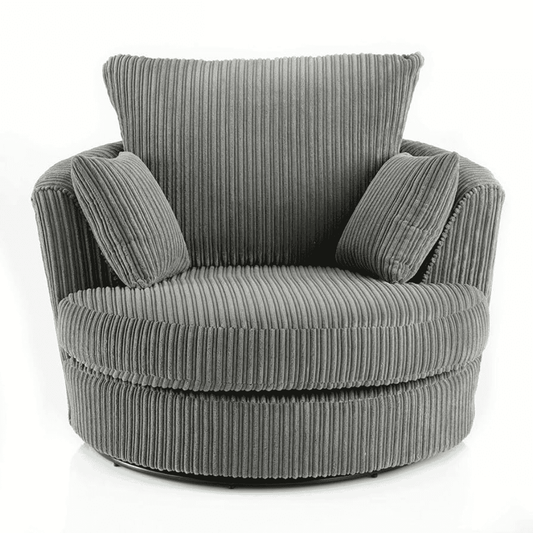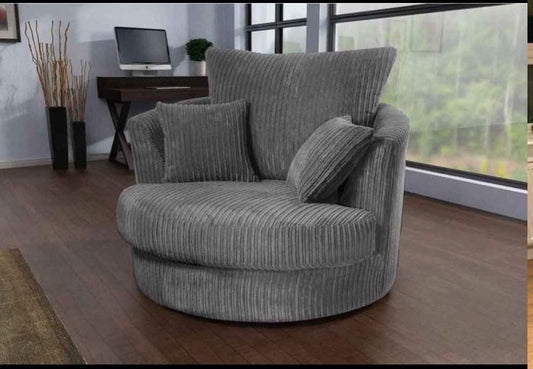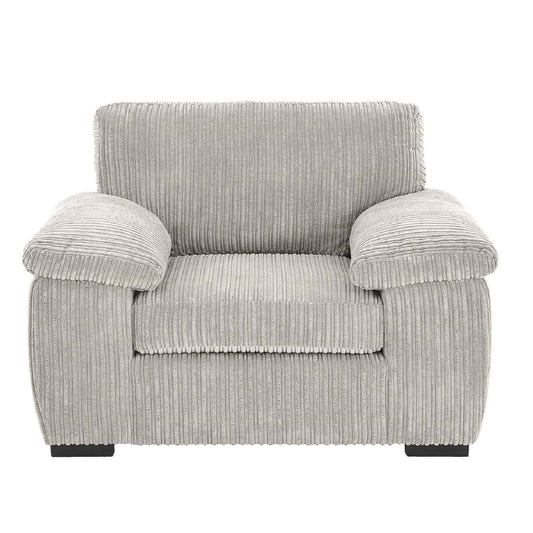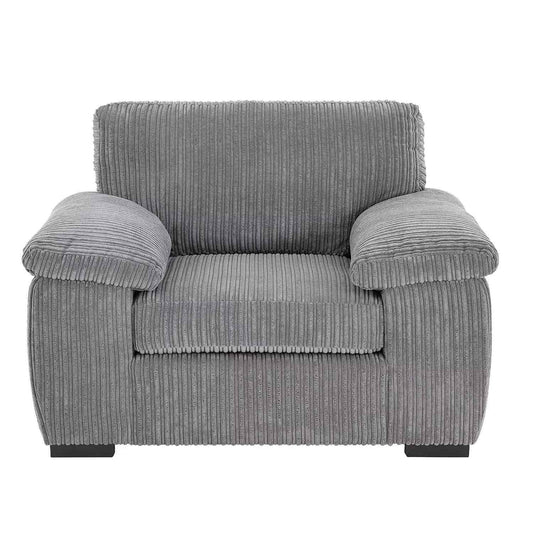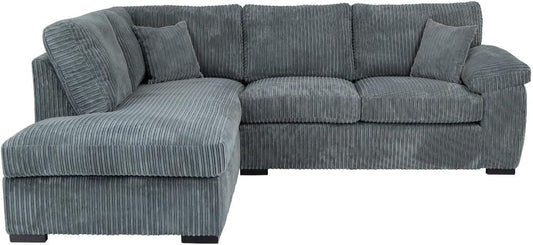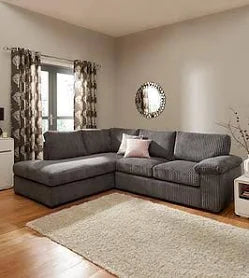4-Seater Sofa for Eco-Friendly Living: Sustainable Materials and Practices
Introduction
In today's world, there is a growing emphasis on sustainability and environmental responsibility. This extends to our living spaces as well. Choosing eco-friendly furniture, such as a 4-seater sofa, can make a significant contribution to reducing your carbon footprint and supporting sustainable practices. This article will explore the various sustainable materials and practices to consider when selecting a 4-seater sofa for your eco-friendly living room.
Sustainable Materials
- Recycled Materials: Look for sofas made from recycled materials, such as recycled plastic bottles or recycled wood. These materials help divert waste from landfills and reduce the demand for new resources.
- Organic Fabrics: Opt for sofas upholstered in organic fabrics like organic cotton, organic linen, or organic wool. These fabrics are grown without the use of harmful pesticides and chemicals, reducing their environmental impact.
- Natural Fibers: Consider sofas made from natural fibers like jute, hemp, or bamboo. These materials are renewable, biodegradable, and often have a lower carbon footprint compared to synthetic materials.
- Plant-Based Leather: If you prefer a leather sofa, look for options made from plant-based leather alternatives like vegan leather or cork. These materials offer a similar appearance and feel to traditional leather but have a lower environmental impact.
- Sustainable Wood: If you choose a wooden sofa, ensure that the wood is sourced from sustainably managed forests. Look for certifications like FSC (Forest Stewardship Council) to guarantee that the wood is harvested responsibly.
Eco-Friendly Manufacturing Practices
- Low-VOC Paints and Finishes: Choose sofas that are finished with low-VOC (volatile organic compound) paints and finishes. VOCs can contribute to air pollution, so opting for low-VOC products is better for both your health and the environment.
- Energy-Efficient Manufacturing: Look for sofas that are manufactured using energy-efficient processes.
- Fair Labor Practices: Support companies that prioritize fair labor practices and ensure that their workers are treated ethically and fairly. Look for certifications like Fair Trade or Fair Labor Association.
Additional Considerations
- Durability and Longevity: Invest in a high-quality sofa that is built to last. A durable sofa will reduce the need for frequent replacements, minimizing waste and environmental impact.
- Comfort and Functionality: Ensure that the sofa is comfortable and functional for your needs. A well-designed sofa can provide both comfort and style, making it a valuable addition to your living room.
- Local Sourcing: Whenever possible, consider purchasing your sofa from local businesses to support the local economy and reduce the environmental impact of transportation.
- Recycling and Disposal: Research the recycling and disposal options for your sofa. Some manufacturers offer recycling programs or take-back initiatives to help reduce waste.
Additional Tips for Choosing an Eco-Friendly 4-Seater Sofa

- Research and Compare: Take the time to research different manufacturers and compare their sustainability practices and certifications.
- Consider Secondhand Options: If you're on a budget or want to reduce your environmental impact even further, consider purchasing a secondhand 4-seater sofa. Many thrift stores or online marketplaces offer high-quality used furniture.
- Support Local Craftsmanship: Consider supporting local artisans or small businesses that specialize in handcrafted furniture. This can help to promote sustainable practices and support the local economy.
- Reupholster an Existing Sofa: If you already have a sofa that is in good condition but needs an update, consider reupholstering it with sustainable fabrics. This can be a more eco-friendly option than purchasing a new sofa.
- Consider Modular Sofas: Modular sofas offer flexibility and can be rearranged to suit your changing needs. This can help to reduce waste and extend the lifespan of your furniture.
- Ask Questions: Don't hesitate to ask the manufacturer or retailer about the sustainability of the materials used in the sofa and the manufacturing processes involved.
- Educate Yourself: Learn more about sustainable practices and the environmental impact of the furniture industry. This knowledge will help you make informed decisions when choosing a sofa.
- Consider the Long-Term Cost: While an eco-friendly sofa may have a higher upfront cost, it can be a more sustainable and cost-effective investment in the long run. Durable, high-quality furniture that is made from sustainable materials can last for many years, reducing the need for frequent replacements.
- Consider the Energy Efficiency of Your Home: If you have a well-insulated home with energy-efficient appliances, you can choose a sofa that is made from materials that require less energy to produce and transport.
- Support Fair Trade Initiatives: Look for sofas that are certified as Fair Trade. This means that the product was produced under fair working conditions and that the workers were paid a fair wage.
- Check for Certifications: Look for certifications such as FSC (Forest Stewardship Council) or GOTS (Global Organic Textile Standard) to ensure that the materials used in the sofa are sustainably sourced and produced.
- Consider the Carbon Footprint of Shipping: If you are purchasing a sofa online or from a retailer that is located far away, consider the carbon footprint of shipping. Choose a retailer that offers eco-friendly shipping options or consider purchasing locally.
- Donate Your Old Sofa: If you are replacing an old sofa, consider donating it to a local charity or thrift store. This can help to reduce waste and provide a valuable resource for others.
- Educate Yourself on Sustainable Living: Learn more about sustainable living practices and how you can reduce your environmental impact. This knowledge will help you make informed decisions when choosing furniture and other products.
Support Local Businesses: Whenever possible, choose a sofa from a local manufacturer or retailer. This can help to support the local economy and reduce the environmental impact of transportation.
Educate Yourself on Sustainable Design: Learn more about sustainable design principles and how they can be applied to furniture. This knowledge can help you make informed decisions when choosing a sofa.
Share Your Experience: If you have found a great eco-friendly 4-seater sofa, share your experience with others. This can help to raise awareness about sustainable living and inspire others to make eco-friendly choices.
Conclusion
Choosing an eco-friendly 4-seater sofa is a conscious decision that can contribute to a more sustainable lifestyle. By selecting sustainable materials, supporting ethical manufacturing practices, and considering other environmental factors, you can create a living space that is both stylish and environmentally responsible. Remember, small steps can make a big difference, and choosing an eco-friendly sofa is one way to contribute to a healthier planet for future generations.

